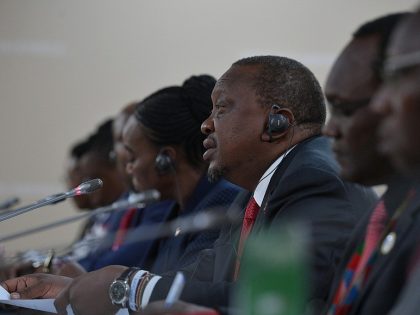
Lockdown 2.0
What exactly did South Africa’s government do with the time they gained through the two-month COVID-19 lockdown, except to brutalize its people?

What exactly did South Africa’s government do with the time they gained through the two-month COVID-19 lockdown, except to brutalize its people?

Once you've exhausted all the Negritude quotes, you have to confront the fact that Leopold Sedar Senghor ran Senegal as a repressive, one-party state.

The misguided rhetoric of Tanzanian President John Magufuli guides the country's response to COVID-19.

In South Africa, we are not in a situation where we need to choose between saving lives and protecting livelihoods. It is far worse. We are in danger of losing both.

COVID-19 exposes the continued inability of most white South Africans to critically reflect on privilege or engage constructively about the handling of the pandemic.

The revival of an elite technocratic rationality is starting to undo South Africa's lockdown, now in its second month.

The legacy of Buhari’s Chief of Staff, Abba Kyari, who died from COVID-19, helps us understand how powerful and yet constrained Nigeria's Presidency is.

NGOs have been notably absent in the fight against COVID-19, despite claims they exist solely to ensure accountability and transparency by government.

More than 90 African intellectuals wrote an open letter to African leaders about the continent’s handling of the COVID-19 pandemic.

South Africa's R50bn ($26bn) rescue package is 10% of its GDP. It is a major step forward, but some warning lights are flashing.

In South Africa, social distancing to bring down COVID-19 infections takes a decidedly local shape. In a racialized society, it manifests primarily as white melancholia and black Afro-pessimism.

Kenyans are split about the legacy of president Daniel Arap Moi, who served from 1978 to 2002 and died on 4 February 2020: Vile and reprehensible vs a benign Baba, history suggests the latter.

Few things are going on as normal during the COVID-19 pandemic. Unfortunately, political dysfunction in Lesotho continues, with negative ramifications for Basotho.

Responding to the COVID-19 pandemic, African governments should stop seeing non-governmental actors as a threat to their own legitimacy.

With their government obsessed more with control of information than COVID-19 itself, Tanzanians are bracing for the worst.

Preocupado em atrair investimentos estrangeiros e combater à corrupção ao administrar uma divisão no partido no poder, o presidente angolano João Lourenço ignora o seu aliado mais forte: a sociedade civil jovem.

Preoccupied with attracting foreign investment and fighting corruption while managing a split in the ruling party, the Angolan president João Lourenço ignores his strongest ally: youthful civil society.

Guinea, more than ever, needs an inclusive debate not only on the function of the state, but also on the nature of our institutions and therefore the very state of the republic.

La Guinée a plus que jamais besoin d’un débat inclusif non seulement sur le fonctionnement de l’état mais aussi sur la nature de nos institutions et donc l’état même de la république. Je vous propose quelques raisons.

Au crépuscule du règne de Ouattara en Côte d’Ivoire.